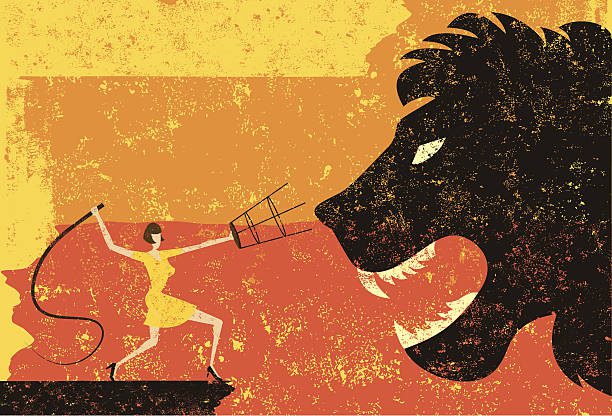Bravery
Bravery is the ability to face fears, challenges, and uncertainties. It is not the absence of fear, but the willingness to face and act in spite of it. Courageous individuals are able to step outside their comfort zone, take risks, and embrace vulnerability. They are willing to be honest with themselves and others, and take responsibility for their choices and actions.
One of the most important aspects of developing courage is recognizing and challenging limiting beliefs and irrational thoughts. Often, our fears are based on beliefs that are not based in reality, such as the belief that we are not good enough or that we are incapable of achieving our goals. By challenging these beliefs and replacing them with more accurate and empowering ones, we can reduce the power that fear has over us.
Another key component of developing courage is taking action. We can build self-confidence and courage by setting realistic goals and consistently taking steps toward them. This can involve tackling small challenges at first and gradually working your way up to bigger ones. By taking action, we prove to ourselves that we are capable of overcoming obstacles and achieving our goals.
It is important to note that developing courage is not a solitary pursuit. We all need the support and encouragement of others to help us overcome our fears and challenges. This can come from friends, family, or a therapist. By surrounding ourselves with positive, supportive people, we can build a sense of community and belonging, which can give us the strength and resilience we need to face life’s challenges.
Furthermore, practicing self-compassion is key to developing courage. We must be kind and patient with ourselves, recognizing that courage is a process that takes time and effort. It is important to celebrate small victories along the way and not be discouraged by setbacks or failures.
The Hidden Grief Behind High-Functioning Anxiety
Courage is a fundamental quality for personal growth and well-being. It involves facing fears, taking risks, and being honest with ourselves and others. Developing courage requires challenging limiting beliefs, taking consistent action, seeking support from others, and practicing self-awareness.
One of the most common barriers to developing courage is the fear of failure. Many of us have been conditioned to believe that failure is something to be avoided at all costs. However, the truth is that failure is an inevitable part of the learning process. By reframing failure as an opportunity to learn and grow, we can reduce the power that the fear of failure holds over us and become more willing to take risks.
Another common barrier to developing courage is the fear of rejection or criticism. We often hold back from pursuing our goals or expressing ourselves fully because of fear of what others might think or say. However, by practicing self-acceptance and acknowledging our inherent worth, we can reduce the impact that external validation has on our sense of self-worth.
It is also important to note that developing courage is not a one-time event, but an ongoing process. Life is full of challenges, and each one presents an opportunity to develop and strengthen our courage. By embracing discomfort, taking calculated risks, and consistently stepping outside our comfort zone, we can build resilience and develop a more confident and empowered sense of self.
Courage is a key quality for personal growth and well-being. By challenging limiting beliefs, practicing self-awareness, seeking support from others, and consistently taking action, we can build the courage we need to live fulfilling and meaningful lives.

Keywords: Bravery, how to be brave, courage, psychotherapy, somatic experiencing therapy, psychotherapist Zagreb, gestalt therapy, Licensed therapist near me in Manhattan NYC, Affordable therapy services in New York State, Holistic psychotherapy sessions in NYC, Somatic Experiencing therapy for trauma recovery in New York City, NARM therapy in Brooklyn, Licensed couples therapy in Manhattan, Gestalt therapy near me in NYC, Marriage counseling in Queens NYC, Therapy for anxiety treatment in NYC, Experienced psychotherapist in New York, Licensed psychotherapist near me in NYC, Somatic Experiencing therapy sessions in New York, Trauma therapy and counseling in Manhattan, Gestalt therapy sessions in New York City, Therapy sessions for emotional regulation in New York, Trauma therapy near me in Brooklyn New York, Licensed mental health therapist in Manhattan NYC, Depression therapy in New York, New York City therapist experienced in PTSD treatment
*Photo: GettyImages
*Contact: Make an appointment
*For companies: Creative Director
How Your Nervous System Reacts to Love and Danger









